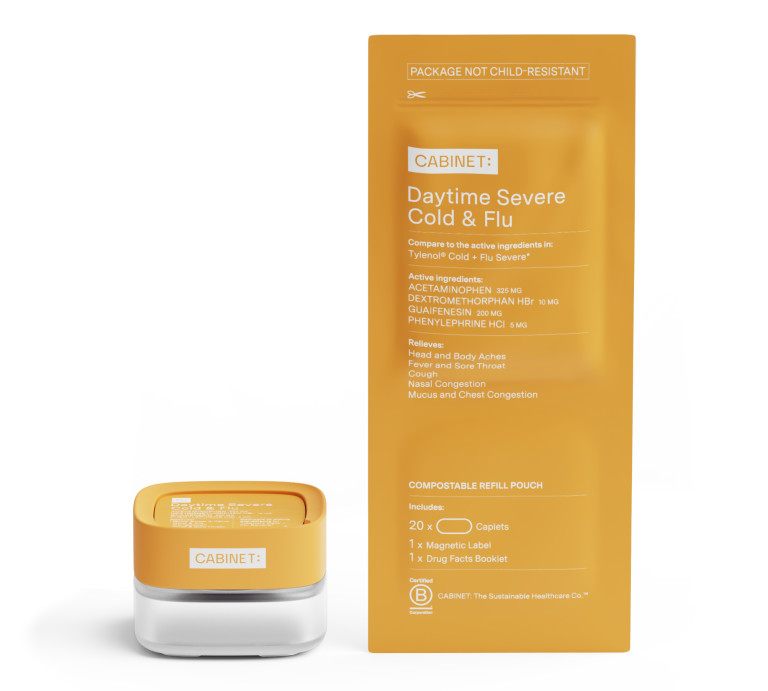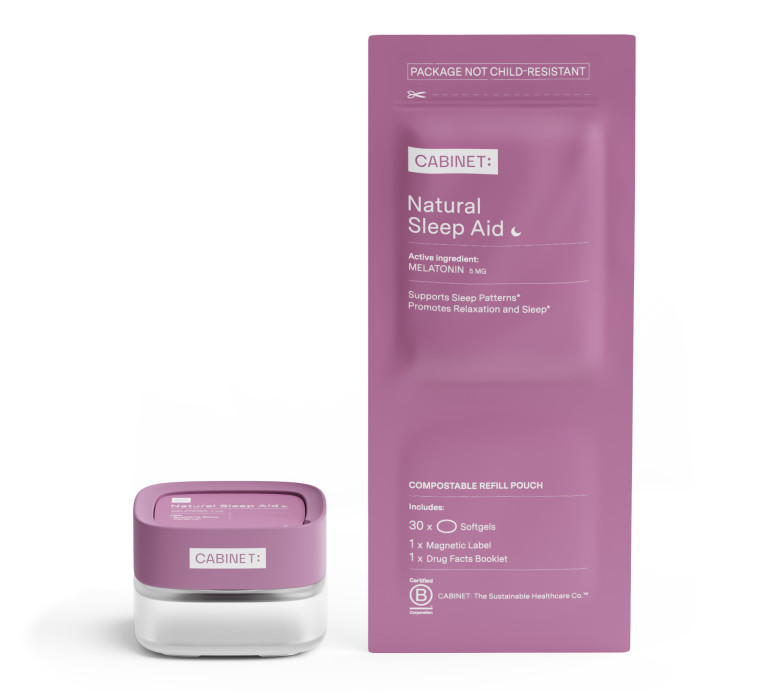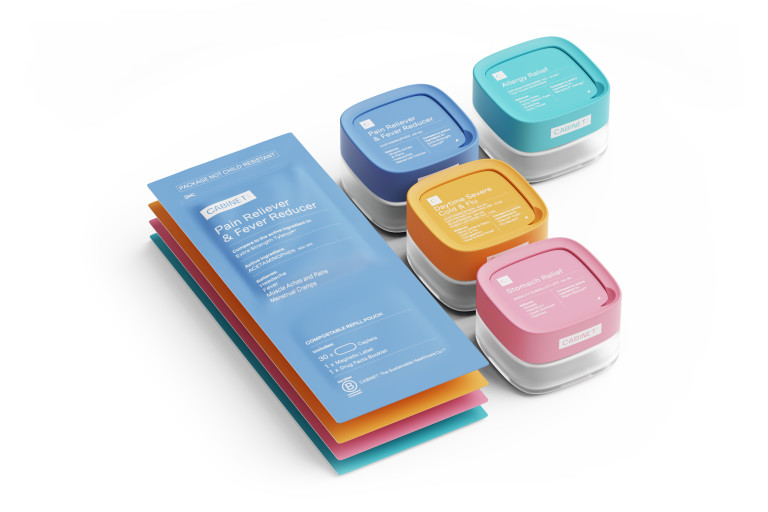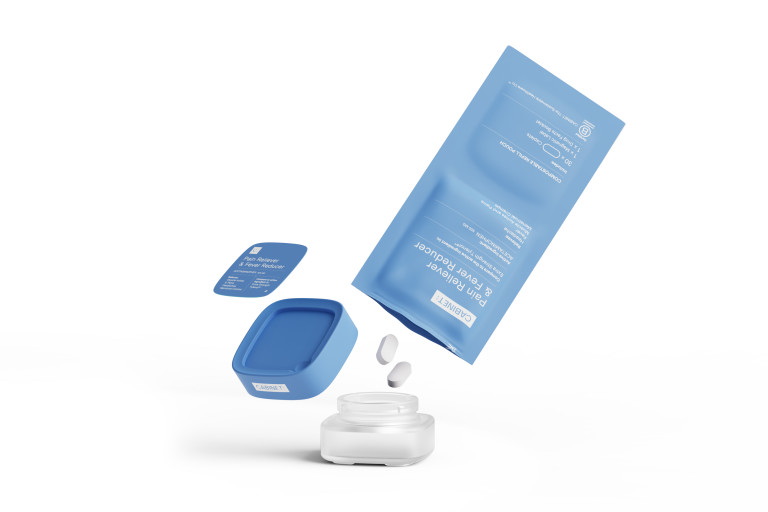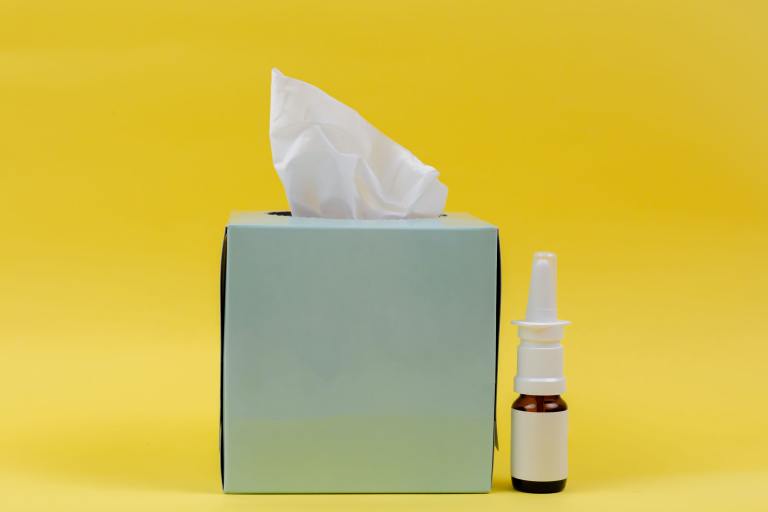So, yes, relief might be closer than you think. You can find some really great OTC medications to treat common conditions, including:
Allergies
Cold and flu
Headache
Pain and fever
Gastrointestinal (GI) distress
Temporary sleep problems
Remember: It’s always a good idea to check in with your doctor, especially if problems persist. Depending on the problem, OTC medicines can provide temporary relief while you get better or wait to see a doctor.
1. When You are Itchy or Constantly Sneezing From Allergies
Take: Allergy Relief - Diphenhydramine or Nasal Decongestant
It’s all about getting ahead of allergy season. Allergy symptoms like sneezing, itchy or watery eyes, and stuffy nose can be a nuisance, to say the least. You can take certain allergy medications as needed when you have symptoms, as allergy prevention (i.e. before a hike or in preparation to visit a friend who has cats), or every day during allergy season, advises the U.S. National Library of Medicine1 .
Antihistamines, like Allergy Relief - Diphenhydramine, work by blocking chemicals that cause unwanted allergy symptoms, called histamines. Diphenhydramine is considered to be the strongest antihistamine, but does cause drowsiness. Non-drowsy antihistamines like loratadine, cetirizine, and fexofenadine can be helpful for daytime allergy relief.
Nasal Decongestant contains an ingredient called phenylephrine, which shrinks blood vessels in the nose to relieve symptoms of congestion. This product can be combined with an allergy medication to provide extra relief from stuffy nose and sinus congestion.
2. When You’re Suffering from Cold or Flu Symptoms
Take: Daytime Severe Cold & Flu, Nasal Decongestant, Pain Reliever & Fever Reducer, Cough Relief, or Mucus Relief
Having a cold or the flu can really interfere with your week. You may experience sinus pressure, fever, cough, congestion, or runny or stuffy nose—or all of the above. Taking a combination pill, like Daytime Severe Cold & Flu, for multi-symptom relief may be a great idea, so you can feel less like a zombie throughout the day.
The 4 active ingredients in the combination pill are also available separately for those who only need relief from specific symptoms. These include:
Phenylephrine, available as Nasal Decongestant. As mentioned in #1, this product can help relieve nasal congestion and sinus pressure from the common cold, flu, and allergies.
Acetaminophen, available as Pain Reliever & Fever Reducer. Acetaminophen2 is one of the most commonly used OTC pain medications. It most likely works by changing the way your body perceives pain. It can also act on the heat-regulating center of the brain to bring down a fever.
Dextromethorphan, available as Cough Relief. Having coughing fits all day with no end in sight? This ingredient works in the cough center of the brain to suppress coughs.
Guaifenesin, available as Mucus Relief. This product works by thinning and loosening mucus present in the airways, making it easier to cough or spit it all out.
3. When You Have a Headache
Take: Tension Headache Relief or Pain Reliever & Fever Reducer
Not to be dramatic, but headaches can be debilitating. Tension headaches are the most common types of headaches. These headaches may present randomly or may be triggered by things like stress, lack of sleep, or eye strain. Tension Headache Relief is a combination pill that contains acetaminophen and caffeine. You saw above how acetaminophen works, so let’s talk about caffeine. Caffeine decreases swelling of blood vessels and blood flow to the brain, thereby relieving pain. Combining caffeine with a pain medication, like acetaminophen, can provide quicker and stronger headache relief. It definitely wouldn’t hurt to keep this product around!
4. When You Have Diarrhea
Take: Stomach Relief
Was it something you ate? Who knows, but you’re getting the sweats and need to find a bathroom, stat. Stomach Relief contains bismuth subsalicylate3 (the active ingredient in Pepto-Bismol), which works by decreasing fluid entering the bowel, reducing inflammation in the intestines, and killing harmful bacteria that cause diarrhea. Oh, and even if you don’t have diarrhea, this product is also effective for heartburn, indigestion, bloating, and nausea.
5. When You Have Bad Gas
Take: Gas Relief
Having excess or trapped gas is not a fun (or funny) experience. From the pressure to the bloating to the abdominal pain, bad gas is bad. You need Gas Relief. The active ingredient, simethicone, decreases the amount of bubbles in the GI tract, making it easier to pass gas. Soon after taking a softgel, you’ll be able to get rid of all that built up gas and continue on with your day.
6. When You’re Lactose Intolerant
Take: Dairy Relief
For many people, cheese and ice cream are comfort foods. For lactose intolerant4 folks, they are quite the opposite. Dairy Relief is a lactase supplement that helps break down lactose (found in dairy products) into sugars that the body can more easily digest. If you’re lactose intolerant and love dairy, this product definitely deserves a permanent spot in your medicine cabinet.
7. When You Can’t Sleep After a Trip
Take: Natural Sleep Aid
You had a fun vacation in a foreign country, but now that you’re home, the jet lag is hitting you hard. You might consider taking melatonin. Melatonin is a hormone produced by your brain that regulates your sleep-wake cycle, according to the National Center for Complementary and Integrative Health5 . Certain factors can throw off melatonin production, including jet lag, shift work, and everyday habits, like staring at your phone before bed. (The blue light from electronic devices can suppress melatonin.) Taking a melatonin supplement, like Sleep Aid, at bedtime can (1) make you feel sleepy or drowsy and (2) help shift your circadian rhythm, making it easier to fall asleep at the right time in the days to come. Soon, you’ll be fully readjusted and back on your normal schedule.
8. When You’re in Pain and Just Can’t Sleep
Take: Pain Reliever & Sleep Aid
Maybe you worked out too hard and now your muscles are sore. Or maybe you have a dull headache. Whatever the pain is, it’s making it difficult for you to fall asleep. This is the perfect time to whip out your Pain Reliever & Sleep Aid. This product contains acetaminophen (as seen in #2) and diphenhydramine (as seen in #1). Acetaminophen works to provide relief from minor aches and pains, while diphenhydramine gently puts you to sleep. Oh, and if you have allergies, diphenhydramine can help with that too!





